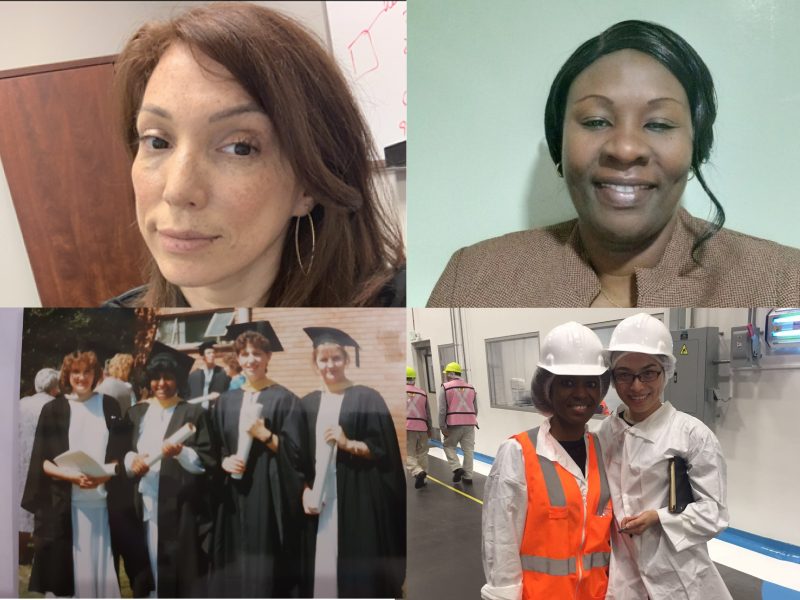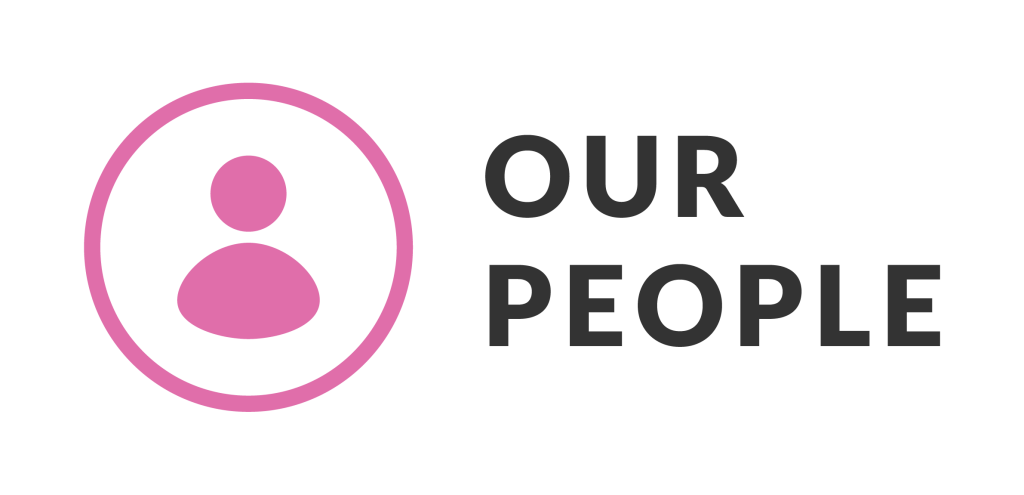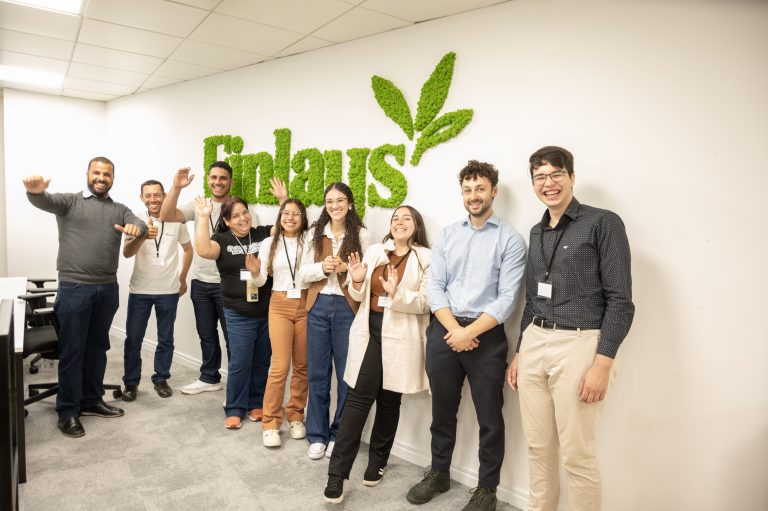At Finlays, we believe real progress happens when we challenge norms, support one another, and push boundaries – values lived out daily by the women shaping our future in science, technology, engineering, and mathematics (STEM). In this article, HR Director Tamie Hutchins spotlights four remarkable colleagues – Frieda Dehrmann (Head of Technical, Finlays Beverages), Dorcas Makunzo (Quality & Sustainability Manager, Finlays Solutions, FTEK), Karina Allan (Finance Controller, Finlays Solutions), and Debby Thornley (Group Process Engineer, Finlays Solutions) – who share their personal journeys, challenges, and the purpose that drives them.
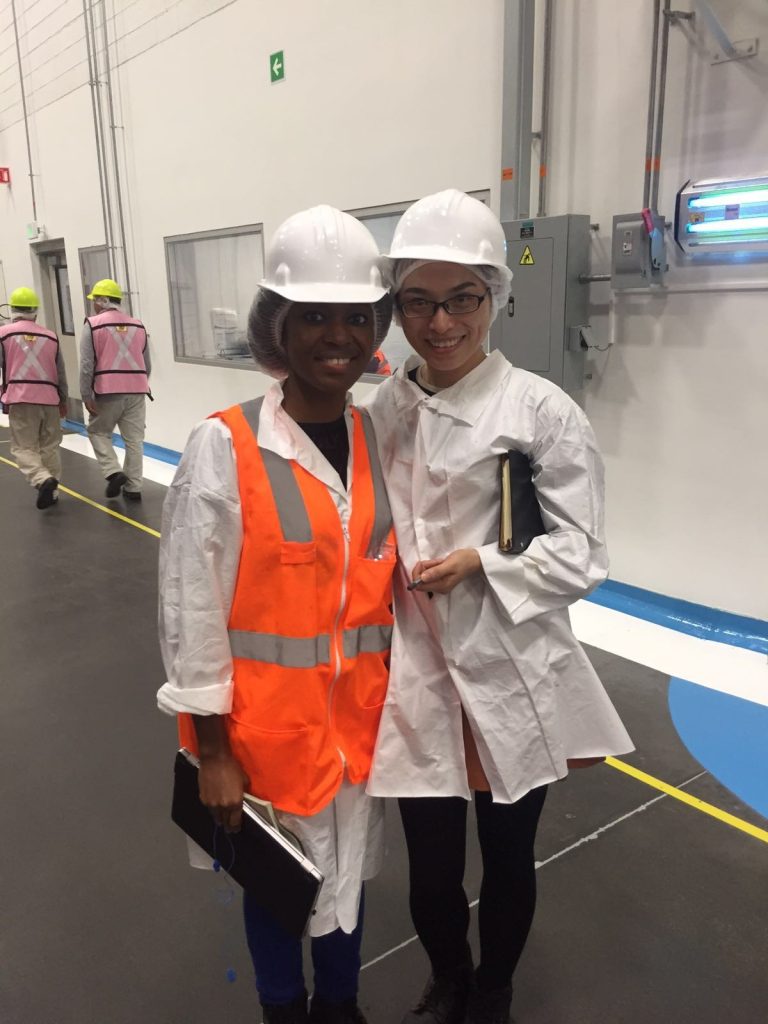
What inspired you to pursue a career in STEM, and how did your journey begin?
Debby: I’ve always been the kind of person who loved taking things apart just to figure out how they worked. That natural curiosity led me to gravitate toward science and maths in school, and to study Chemical Engineering at university. I knew early on that I wanted to apply scientific thinking to real-world problems, and the food and beverage industry offered the perfect mix of creativity, innovation, and technical challenge.
Karina: From an early age, I was drawn to problem-solving and analytical thinking, which naturally led me toward finance. I used to make up equations and solve them just for fun. I love to solve problems and reconcile differences. In college, I was inspired by the ability of numbers to tell a story, the weight numbers carry in decision making, and how numbers reflect the heartbeat of an organization.
Frieda: It started at school, with a keen interest in the sciences. My first attempt at a Science education was in fact in medicine, where I studied for a year and half before deciding that it wasn’t for me. I then worked in a pharmacy which sparked the love of chemistry which has led to a degree in Biochemistry and Microbiology, a Masters and then my PhD.
Dorcas: Right from my early years, I loved mathematics and science. My father, an educator had always insisted that the best careers were in the science field. This motivated me and in my final year in high school I performed so well in the STEM subjects I was given the opportunity to teach younger classes and paid me for this with a loaf of bread.
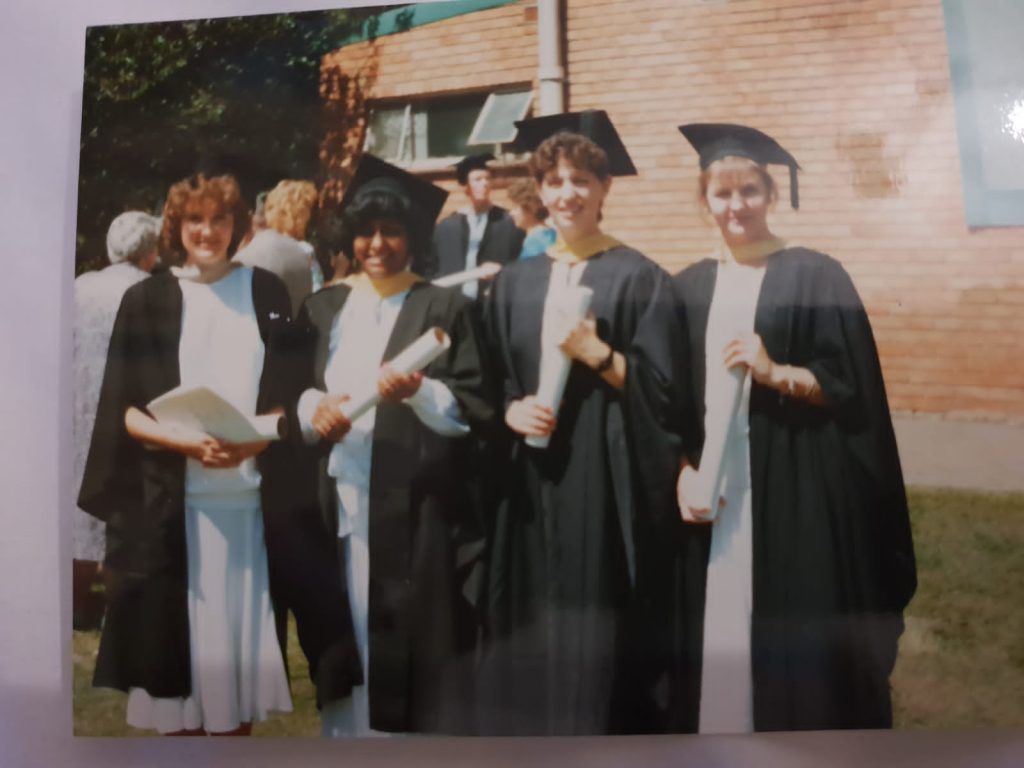
Can you share a significant challenge or barrier you faced as a woman in STEM and how you overcame it?
Debby: One of the most consistent barriers I’ve faced is walking into rooms where I was the only woman and often the only woman of colour with a technical background. That experience can make you feel like you have to work twice as hard to be heard or taken seriously. Over time I realised that my voice did matter, and that my perspective which is shaped by both technical expertise and lived experience was an asset, so now I lean in. I’ve also learnt the power of building a strong network.
Karina: The biggest career barriers weren’t technical, they were structural. In male-dominated industries, opportunities for leadership were often less accessible to women. I had to wait and be patient to earn promotions throughout my career. The key to overcoming this was mentorship, and unwavering persistence. Workplace inclusion has improved over the years, but companies must continue fostering cultures where diversity is celebrated, and leadership pipelines are truly equitable.
Frieda: Honestly, I don’t remember any significant gender challenges. There were other challenges of funding, and in South Africa, there were other challenges for non-European students. However, as far as gender opportunity, it always felt equal in this field of science.
Dorcas: It was – and still is – believed that women do not do well in STEM and it is a male dominated field. At university, we were very few ladies in our class and we often felt left out as our male classmates were always in front running the show while the ladies sat back. This made us almost believe that indeed STEM was a man thing. However we encouraged ourselves and ensured that we supported each other to do well in our exams and to our surprise, we actually topped the class severally!
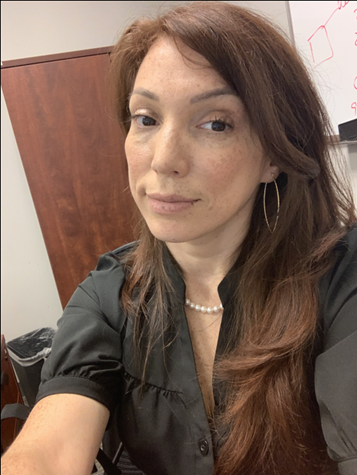
What one piece of advice would you give to young women or girls interested in pursuing a STEM career?
Debby: Don’t try to mould yourself to fit someone else’s version of success, embrace your unique strengths. Prepare well, speak up even when it’s uncomfortable, and trust that your voice matters.
Karina: Be bold, be prepared, and never let self-doubt hold you back. STEM fields thrive on innovation and diverse perspectives, your voice and skills are needed.
Frieda: Stay curious, find your dream, and follow the journey. Don’t let anything make you lose focus or think differently about your vision.
Dorcas: I would proudly tell the young women to “Go for it!” Stay focussed and pursue your passion.
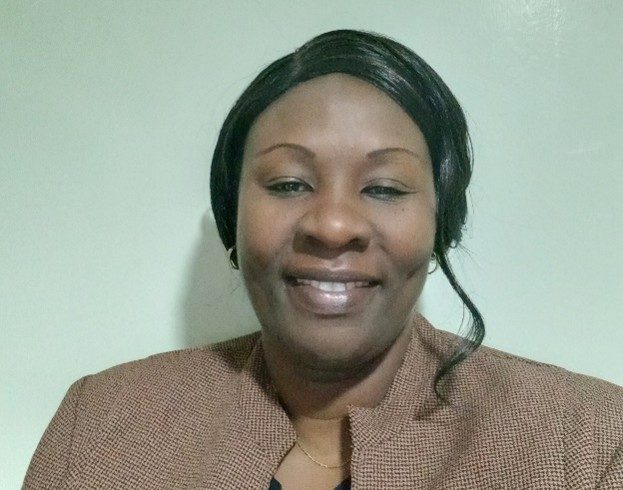
What can organizations do to promote and support more women in STEM-related roles?
Debby: We need organisations to move from performative support to active sponsorship and system-level accountability. Throughout my career, what’s made the biggest difference is access to career development programs, and being trusted with stretch opportunities that built my confidence and visibility.
Karina: I believe that organizations should foster an inclusive environment. The hiring process should include gender neutral language and a diverse hiring panel. A mentorship program to develop women and train them into leadership STEM roles is an idea. I particularly am a fond of the Women in Business (WIB) program Finlays offers because it sends a message to everyone that women have the space to thrive and grow as much as men, in this organization. When women see others in leadership roles, it signals that success is achievable, creating a cycle of empowerment that benefits everyone.
Frieda: Create a supportive environment for all employees. Work output is always first but we should consider things such as flexible working, both in hours, and where appropriate in location supports some of the other gender challenges faced. Finlays has done a great job at this, just look around our business.
Dorcas: Companies should encourage, empower and support more Women in STEM by giving opportunities in employment.

